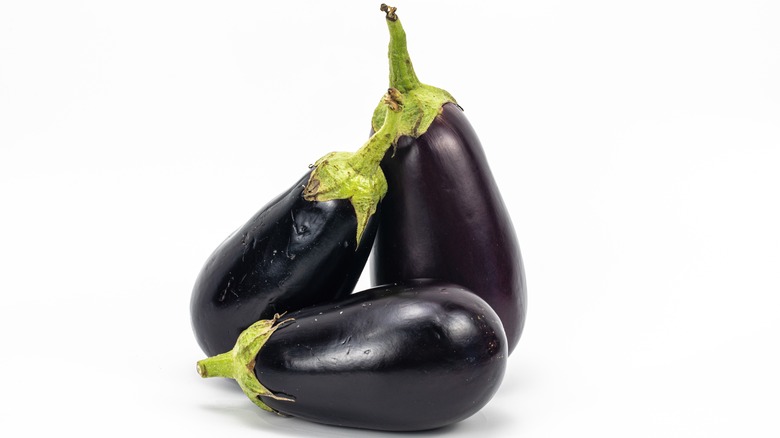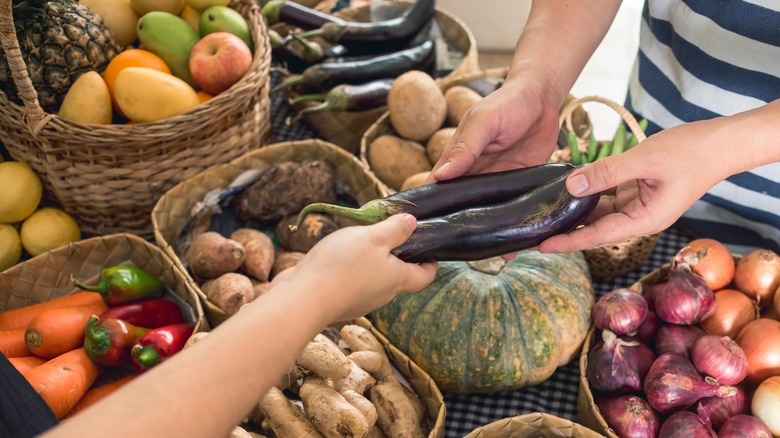Why You Should Always Buy Small Eggplants
Eggplants, also known as aubergines, are used in various dishes all around the world (via Brittanica). It is a spongy, firm fruit when raw, but becomes tender when cooked. Eggplant absorbs the flavors of what it is prepared with, making it the ideal ingredient for many dishes. According to The Spruce Eats, eggplant tastes mild, sweet, and slightly bitter. It contains a silky texture that is ideal for making dips. The dark purple, glossy eggplant is often considered a vegetable, but it is actually a fruit.
Eggplant is rich in many nutrients, including vitamins, minerals, polyphenols, and fiber. They are high in antioxidants, help control blood sugar, may reduce the risk of heart disease, and may help manage weight (via Healthline). This nutrient-dense food is an excellent addition to many recipes. However, there are several factors to consider when selecting the perfect eggplant and SFGATE recommend choosing the smallest one you can find.
Choose small eggplant for best flavor
According to SFGATE, selecting small, smooth, shiny eggplants ensures the flesh will be tender and sweet. As eggplant matures, the fruit becomes bitter, light in weight, and the skin becomes dull, wrinkled, and uneven in color. Two eggplants of the same size should be compared for weight and the fruit that feels the heaviest is the one you should choose. Lightweight, large eggplant are mature, contain more seeds, and taste bitter.
Bon Appétit says that eggplant should not be hard to the touch. Push on the fruit with your finger. The eggplant is too mature if it feels soft or if the skin is easily penetrable. Ripe eggplant will not give much — it feels slightly firm but not hard, similar to a tomato. The stem should be green and free of mold, damage, and mushiness.
Small, heavier eggplant is your best option when selecting eggplant for your next recipe. Make sure to store the eggplant in a plastic bag in the refrigerator for no more than five days (via Home Guides).

